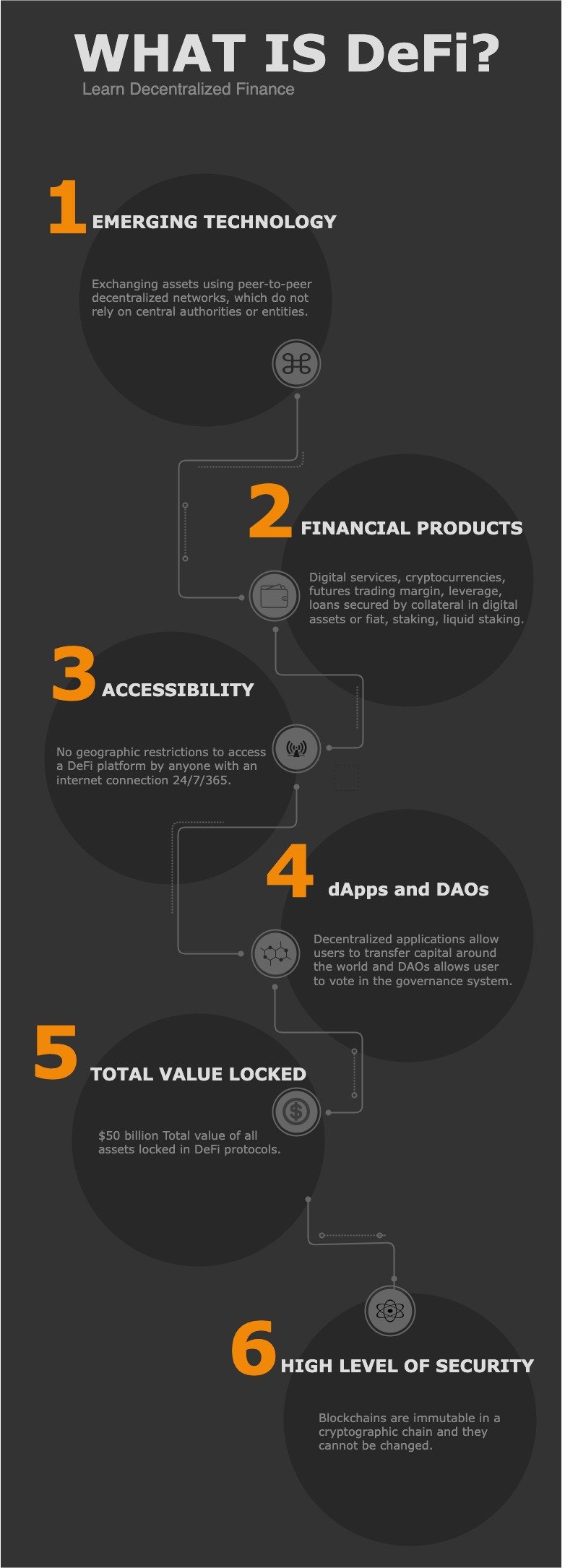What is a Decentralized Protocol?
finTech, learn, MONEY
Image connected blocks in blockchain 3D illustration via Getty Image Photo Shubham Dhage
How does DeFi work?
Decentralized finance (DeFi) uses blockchain technology, which is similar to that of cryptocurrencies, to store and distribute data. DeFi applications or dApps (decentralized applications) use and run the blockchain, while store all the data across a network of computers which is peer-to-peer. In the blockchain, transactions are made by sending money and other assets through a series of transactions. A block is created every time a new transaction is verified and added to the blockchain.
A blockchain is a chain of blocks that are linked together through the information in each block, which gives it its name. When any new block is created, it is not possible to alter the information contained in previous blocks without affecting blocks following them, so there is no way to edit an existing blockchain. This concept ensures that the chain remains secure.
Decentralized finance is a revolutionary technology that allows people to create their own rules in which to live their daily lives. Through smart contracts and blockchain technology, decentralized finance could be used for everything from microloans to property titles and investments and has the potential to create a decentralized form of trustless global markets.
"Any contract that you do in the real world, whether you're taking a mortgage or you're asking for a loan, would like to trade some stock or bond, or even to buy an apartment it's rule-based. So, this rule base can be coded and automated" ~Dr Merav Ozair FinTech professor, Rutgers Business School
Decentralized finance view, infographic compoundY
KEY TAKEAWAYS
DeFi is an emerging technology which infrastructure and regulation are continually changing and evolving. Using emerging technology to remove third parties and centralized institutions from financial transactions presents a high level of volatility. DeFi is an important new area of innovation for the finance industry. It's decentralized and it has no central authority. While a few companies are currently ahead of innovation revolution, more will join in to help pave the way for the future of finance.
Decentralized systems give rise to new products, services, and markets. Also, amplifies consumers relationship with the technology. It gives rise to a new way of thinking about financial products and services by allowing them to be built from the ground up by crowdsourcing without middlemen. Decentralized finance is in constant flux and since it's not regulated in all of the countries there are a number of concerns. Scams is common and the community is frequently on edge about infrastructural issues. Also, participation in DeFi can be overwhelming at times due to its high risk of fraud and its complexity.
We hope that you enjoyed this post about decentralized protocols. Share your thoughts and questions in the comments below, and let's continue this exciting journey together!
☆☆☆














Analysis of Cosmos Network’s top promising projects. From tokenomics, to developer activity, and growth outlook—giving UK readers key insights on blockchain interoperability and most exciting use cases.